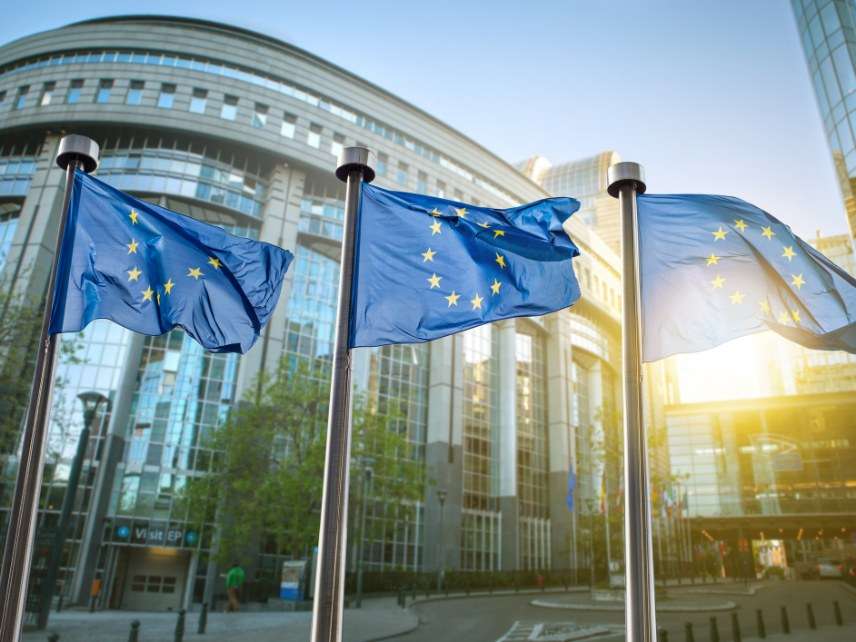Europe Delays Plan to Destroy the Internet With Terrible Copyright Enforcement Proposal
Lawmakers resist plan that would likely lead to widespread censorship of online media sharing.

It turns out the European Union will not be destroying the internet with a harsh copyright enforcement system, at least not yet.
Today the European Parliament turned away a set of proposed regulations called the Directive on Copyright in the Digital Single Market. These regulations raised alarm bells among free speech and digital activists because they would greatly expand the reach and breadth of copyright laws for the benefit of media and entertainment companies in a way that is likely to result in massive amounts of online censorship.
Two articles within the directive were causing the biggest headaches. Article 11, designed to protect established media outlets in Europe, would have granted them the authority to demand that anybody who wanted to excerpt even small parts of their stories get (and potentially pay for) a license or permission from them. That requirement would have extended even as far as the "previews" that show up on social media sites when people share a link to a news story.
The larger threat came from Article 13. That section, designed for the benefit of the entertainment industry, would require any online outlet where users can share content (everything from YouTube to dating sites) to create an automated system of filters to prevent the posting of copyrighted material. Experts warned that such a system, which would rely on databases, would have no way of telling whether copyrighted material was being used legally under the "fair use" exceptions allowed by various countries.
The end result of both provisions could be a wide regime of online censorship that only the larger online companies would have to resources to successfully navigate. It would encourage scams and threats falsely accusing sites of copyright violations to shut them down or entangle them in court cases. Scholars, tech experts, and free speech advocates have been warning the European Union not to move forward with this plan. As a vote approached this week, Wikipedia shut down access to versions of its site in Spanish, Italian, and Polish as a protest and warning. These proposed rules would be a compliance nightmare for the free online encyclopedia, which relies heavily on fair use of media content and freely shared images.
While the new regulations passed a committee vote in late June, today E.U. lawmakers rejected it in by a vote of 318 to 278. That vote means the proposal will be debated by the full parliament in September and probably will be revised significantly. European media outlets and entertainment industry representatives plan to keep pushing for the regulations, which they say will provide much-needed "leverage" with big tech companies like Google and Facebook. But copyright enforcement mechanisms are often used against the little guy to try to censor criticism or other types of speech that people don't like.
Read more about the awfulness of this E.U. proposal here.

Show Comments (27)